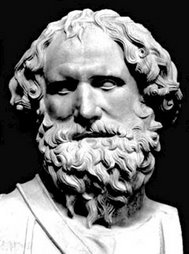 Grade: A
Grade: A
"Though argument does not create conviction, lack of it destroys belief. What seems to be proved may not be embraced; but what no one shows the ability to defend is quickly abandoned. Rational argument does not create belief, but it maintains a climate in which belief may flourish." -Austin Ferrer
In By the Hand of Mormon, Terryl Givens examines why the Book of Mormon "has been taken seriously--for very different reasons--by generations of devoted believers and confirmed skeptics." Although his aim is not apologetics, by examining what the Book of Mormon "has meant, and might conceivably yet come to mean, to its various readerships," Givens maintains a climate in which belief may flourish. His work is a masterpiece.
I read By the Hand of Mormon as part of a book group formed by my good friend James Olsen. I recommend this book and James Olsen's book group without reservation. I'm thankful to the book group for renewing my belief that things are better understood when discussed with others. I'm thankful for Terryl Givens for strengthening my testimony of the truthfulness of the Book of Mormon through his careful, well-researched analysis.
This is an informative book. If your knowledge of the Book of Mormon is like mine--largely obtained by reading the Book itself and through a lifetime of Sunday school lessons, conference talks and discussion with members and non-members alike--then you will learn something by reading this book. Additionally, By the Hand of Mormon will increase your confidence that the Book is true. Given's careful examination of the facts reinforced my testimony and enhanced my ability to address my beliefs in academic terms.
Here is the description from the front flap: In By the Hand of Mormon "Givens examines the Book of Mormon's role as a divine testament of the Last Days and as a sacred sign of Joseph Smith's status as a modern-day prophet. He assesses its claim to be a history of the pre-Columbian peopling of the Western Hemisphere. . . . Givens explores how the Book of Mormon has been defined as a cultural product, the imaginative ravings of a rustic religion-maker more inspired by the winds of culture than the breath of God. He also investigates its status as a new American Bible . . . probes the Book's shifting relationship to Mormon doctrine and its changing reputation among theologians and scholars. Finally . . . Givens highlights the Book's role as the engine behind what may become the next world religion."
Here are a few nice excerpts on analyzing the Book of Mormon's theological merit: "Bruce R. McConkie gave canonical utterance to the logic of LDS testimony that continues to be a feature of member and missionary expression alike: "The Book of Mormon . . . stands as a witness to all the world that Joseph Smith was the Lord's anointed through whom the foundation was laid for the great latter-day work of restoration."
"As a result . . . the Book of Mormon was seldom presented --or received by the appreciative--in terms of its claims, arguments, or doctrine. Its a priori incarnation as sacred history inscribed in gold, together with the aura of supernatural origins always framed its mention, far overshadowed and even displaced whatever internal persuasiveness it might have had. And just as Joseph’s prophetic authority was guarantor of the text's sacred status, so the very presence of this voice speaking "out of the dust," predicted by scripture and verified by the voice of angels and human witnesses alike, was guarantor that Joseph was indeed a prophet of God."
Its status as authoritative text "polarizes the Book of Mormon's reception around the issue of authenticity rather than theological merit."
Givens borrows a framework for understanding this phenomenon from Russian critic Mikhail Bakhtin, who "argues that there are two modes of language by which we are influenced: authoritative discourse and internally persuasive discourse. The latter category is any language that makes its claim upon us on the basis of its logic, rhetorical appeal, compelling argument, or emotional sway. 'The authoritative word,' on the other hand, 'demands that we acknowledge it, that we make it our own; it binds us, quite independent of any power it might have to persuade us internally; we encounter it with its authority already fused to it.' Some language, in other words, is so wedded to an authoritative source that we find it difficult or impossible to assess the content as content. We cannot analyze, negotiate, critique, or selectively assimilate it."




